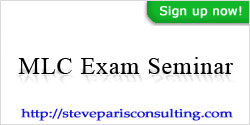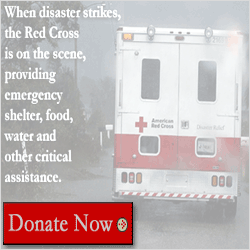« Ex-CEO pleads guilty in HIH case | Main | »
December 15, 2004
Actuaries in Several Countries Addressing Concerns over Profession's Integrity and Credibility
 MONTREAL, Nov. 17 -- CAS Press Release -- The actuarial profession in several countries is developing new rules and standards to affirm its integrity and competence to the public, the Casualty Actuarial Society (CAS) was told here.
MONTREAL, Nov. 17 -- CAS Press Release -- The actuarial profession in several countries is developing new rules and standards to affirm its integrity and competence to the public, the Casualty Actuarial Society (CAS) was told here.
Speaking at the Annual Meeting of the CAS, representatives of actuarial associations from Australia, Canada, the United Kingdom and the United States reported on efforts to strengthen the public's confidence in the profession.
Concerns about the actuarial profession's responsibility to the public have been generated recently by the financial problems of major insurers in Australia and the United Kingdom and criticism of the quality of actuarial opinions in the United States.
Mary Frances Miller, president of the CAS, said that the organization's board is looking at ways to improve the credibility of the profession, particularly with regards to doubts about the adequacy of stated loss reserves.
She pointed out that observers of the property/casualty insurance industry and users of p/c insurance company financial statements have expressed significant doubts about the adequacy of stated loss reserves.
She said the board identified a number of initiatives that are under consideration, including increasing the experience requirement for signing a statutory opinion, requiring the actuary to meet regularly with the company's audit committee (with or without management), requiring the audit committee to get an outside opinion, and having the signing actuary certify his/her opinion to the Securities and Exchange Commission.
Other suggestions, including requiring peer review, developing a public track record of opinion signers, and triggering an automatic Actuarial Board for Counseling and Discipline (ABCD) investigation when development exceeds a threshold are intended to "provide more backbone to the actuary," she said.
Graham E. Rogers, president of the Institute of Actuaries of Australia, reported that the collapse of the HIH Insurance Group and a subsequent government investigation raised issues for the actuarial profession which resulted in ways to enhance the standing of the profession and raise public awareness of the actuary's role.
"The actuarial profession is in the spotlight," said Rogers. "There are key issues concerning the proper and timely use of actuarial advice, and the public interest responsibility of actuaries."
Rogers said that the Royal Commission investigating the failure of HIH, the largest casualty insurer in Australia, identified under-reserving by the company as the major reason behind the collapse.
Rogers said that in his examination of the company's failure to heed actuarial advice, the government's chief investigator wondered: "Did anyone stand back and ask themselves the simple question -- Is this right?"
He said that in the wake of HIH, the profession in Australia launched a review of corporate governance standards for the profession.
These efforts include independent peer review of the actuary's work and improving support for actuaries in meeting disclosure duties and responsibilities.
Harvie Brown, president of the Faculty of Actuaries in the United Kingdom, pointed out that many of the same issues involving the actuarial profession had arisen in the wake of serious financial problems with guaranteed annuities sold by Equitable Life Insurance Company (UK). A government investigation into the company led to an independent review of the actuarial profession.
The profession responded with several initiatives it had been considering. One involved the revalidation of professional competence through continuing professional education and practicing certificates. "It is no longer acceptable just to have passed exams," said Brown. "The profession must demonstrate to the public that actuaries are also keeping themselves up to date."
To protect against conflicts of interest, an Independent Actuarial Standards Board, operating separately from the professional governing bodies, has been proposed to establish codes of professional conduct and ethics as well as technical standards.
The proposed board will set well-defined criteria for standards, identify when new or revised standards are required, and maintain an oversight and scrutiny of the process, but will not draft the standards, said Brown. Establishment of the standards will involve wide consultation, not just with actuaries, but others involved.
Meeting the public's expectations of the profession is a similar challenge for Canadian actuaries, said Brian FitzGerald, president, Canadian Institute of Actuaries.
"The Institute holds the duty of the profession to the public above the needs of the profession to its members," he said.
He observed that all actuarial organizations have rules of professional conduct and requirements for continuing education, and operate counseling and discipline systems.
FitzGerald identified several issues confronting Canadian actuaries. "One is the question of what input we should seek from people outside the profession," he said.
"While we have sought advice from non-actuaries and consulted with outside organizations when developing standards, we have not had the practice of having them sit on our councils and committees," FitzGerald said.
He said that the organization is discussing the addition of outsiders to its practice standards council and possibly its committee on professional conduct.
FitzGerald said there is an effort under way to strengthen ways of developing standards of practice. "We do not have an independent standard setting board, but I suspect there could be one in the future."
Robert E. Wilcox, president, American Academy of Actuaries, agreed that there will be "significant change in the way we practice and the standards of practice."
The Academy is considering steps to enhance the Actuarial Standards Board and the ABCD's independence by incorporating them separately and adding non-actuaries to selected committees, who would provide advice and vet standards before they are finalized.
In addition, the U.S. profession is considering an exposure draft of a new and expanded qualification standard. This is due to concerns expressed about the level of continuing professional development credit required for those signing statements of actuarial opinion, and how it compares with other professions as well as to actuaries in other countries.
The Casualty Actuarial Society is an organization dedicated to the advancement of the body of knowledge of actuarial science applied to property, casualty and similar risk exposures. The primary goal of the Casualty Actuarial Society is to provide education and research to help its members become leading experts in the evaluation of hazard risk and the integration of hazard risk with strategic, financial and operational risk.
Posted by Tom Troceen



